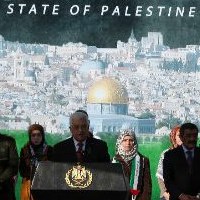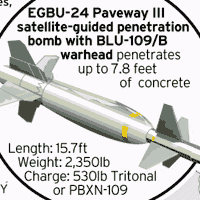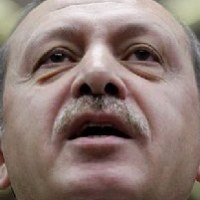![]()
Fri, April 8 2011 | 06TELAVIV3910
WikiLeaks: US Discusses Gaza with Israeli Security Chief
Summary:
During an October 3 meeting with ISA (Shin Bet) Director Yuval Diskin, The Ambassador stressed the need to find a way to keep Gaza’s Rafah crossing open. Diskin argued that the Egyptians are not doing enough to counter smuggling, including of advanced anti-tank missiles, into Gaza. So far these weapons had not been used because those who had them lacked training; an open door at Rafah could change this. The Ambassador and Diskin agreed that Fatah needed to be strengthened in order to help President Abbas face down the current Hamas challenge. Diskin said PM Ismail Haniyeh appears more interested in governing than in fighting Israel, but without soldiers behind him, is unable to stand up to the Hamas leadership in Damascus. The Ambassador thanked Diskin for Shin Bet’s close cooperation on counterterrorism cases but cautioned that we might have to review our travel warning for Israel if the treatment of AmCits at Ben Gurion airport doesn,t improve.
End Summary.
Source: WikiLeaks
Cable dated:2006-10-04T14:59:00
S E C R E T SECTION 01 OF 03 TEL AVIV 003910
SIPDIS
E.O. 12958: DECL: 10/03/2021
TAGS: PREL, PTER, PINR, KPAL, KWBG, EG, IS
SUBJECT: AMBASSADOR AND SHIN BET CHIEF DISKIN DISCUSS GAZA, CT COOPERATION, MISTREATMENT OF AMCITSClassified By: Ambassador Richard Jones for reasons 1.4 (b) and (d)
1. (S) SUMMARY. During an October 3 meeting with ISA (Shin Bet) Director Yuval Diskin, The Ambassador stressed the need to find a way to keep Gaza’s Rafah crossing open. Diskin argued that the Egyptians are not doing enough to counter smuggling, including of advanced anti-tank missiles, into Gaza. So far these weapons had not been used because those who had them lacked training; an open door at Rafah could change this. The Ambassador and Diskin agreed that Fatah needed to be strengthened in order to help President Abbas face down the current Hamas challenge. Diskin said PM Ismail Haniyeh appears more interested in governing than in fighting Israel, but without soldiers behind him, is unable to stand up to the Hamas leadership in Damascus. The Ambassador thanked Diskin for Shin Bet’s close cooperation on counterterrorism cases but cautioned that we might have to review our travel warning for Israel if the treatment of AmCits at Ben Gurion airport doesn,t improve. END SUMMARY.
————————————–
EGYPT TO BLAME FOR SMUGGLING INTO GAZA
————————————–
2. (S) Diskin said he blames Egypt for the ongoing problem of weapons and explosives smuggling into Gaza. The Sinai is their responsibility, he said, but they are not interested in doing what it takes to effectively counter the smuggling. Diskin added that Shin Bet and others give the Egyptians &all of our intelligence8 about the smugglers, including names and locations, but they do not act on it. “We know from intelligence that the Egyptians sit with us and lie,” Diskin said, referring to the Egyptian government’s argument that it is acting effectively against smugglers. Diskin said there were now “lots” of tunnels under the Philadelpi Strip, and neither Egypt nor the PA seemed willing or able to close them. The Egyptians say they have found some tunnels, “but I don’t believe them,” he added. (Note: According to press reports, Diskin also criticized Egypt during a Cabinet meeting on September 27, claiming that 19 tons of explosives had been smuggled into Gaza since disengagement.)
3. (S) Diskin said he told Egyptian Intelligence Chief Omar Suleiman that Israel would be willing to conduct joint operations with Egypt against the smugglers, but that Suleiman did not seem interested. According to Diskin, Egypt’s complicity in Gaza smuggling was the result of two factors: corruption in the security forces and the government’s view that, unlike Sinai-based anti-Egyptian terrorism, smuggling was not a national security problem for Egypt.
————————–
ANTI-TANK MISSILES IN GAZA
————————–
4. (S) Diskin added that Shin Bet now had sensitive information that Hamas recently smuggled 20 Russian-made Koronet anti-tank missiles into Gaza, of the kind used successfully by Hezbollah against IDF Merkava tanks. Hamas militants are currently holding the missiles, and are waiting for training on how to deploy them, he said. He later noted that this was one reason why Shin Bet opposed openings of the Rafah crossing. Diskin said he has not shared this information with Egypt.
————————–
OPENING THE RAFAH CROSSING
————————–
5. (S) The Ambassador asked whether Shin Bet was seeing much smuggling via the Rafah Crossing, and stressed that it was important to find a way to keep the crossing open, as called for in the Agreement on Movement and Access (AMA). Diskin responded that all parties to the AMA have failed to fully meet their obligations, implying that the GOI should not be expected to implement every item in the AMA while the USG, Egypt and PA had yet to live up to their parts of the bargain. Diskin said that the problem with Rafah was not weapons smuggling, but money smuggling and the transit of Syrian experts to train Hamas militants. Additionally, Hamas is planning to send 20-30 activists in the near future for training in Iran, he said.
6. (S) Diskin commended the EU for doing the best it could in a tough situation. The Ambassador agreed the EU was doing a good job, but cautioned that the EU might walk away from its Rafah monitoring mission if the crossing was not opened soon. On the other hand, the Ambassador said, if we can find a way to keep the crossing open, the EU might then be interested in helping out at Karni and other sites. The Ambassador added that Secretary Rice would likely push this point during her meetings here this week. Diskin said the GOI wants to open the crossing also, but still sees doing so as a threat. “The Egyptians need to do more,” he concluded.
————————————–
HAMAS VS. FATAH: WRESTLING FOR CONTROL
————————————–
7. (S) Asked for his assessment of the October 1-2 clashes between Fatah and Hamas security forces in Gaza (which left 11 dead, according to press reports), Diskin said he did not think the situation would deteriorate further. Both sides know how to pull back at the last minute, he said. At the same time, Fatah activists continue to grow weaker and are now unable to effectively retaliate in the Gaza Strip or against Hamas militants, especially Political Bureau Chief Khaled Mashaal, in Damascus. Diskin said that Fatah,s ability to act against Hamas is limited to the West Bank, where Fatah owes its comparative strength primarily to ongoing GOI operations against Hamas activists. He added that if GOI operations against Hamas in the West Bank ceased, the situation would soon reflect a more realistic power relationship, with Hamas on top. Hamas recognizes this, Diskin said, and has been trying over the past 6-12 months to recruit operatives from among West Bank-based security forces, using past (Oslo-era) family and community ties to Gaza as leverage. “We have had lots of success in the West Bank in recent months foiling the plots of Hamas, PIJ and others,” he said.
8. (S) Diskin argued that the strategic problem in the Palestinian Territories was not so much the strength of Hamas, as the weakness of Fatah. Abu Mazen would remain weak until he took the time to take control of his party, Diskin said. Abu Mazen needed to create a more effective structure to bind the various party elements to his authority in order to prevent further disintegration and eventual marginalization. But by all accounts, Diskin said, Abu Mazen does not seem interested or able — “I speak with many Fatah activists and can say that nothing is being done by Abu Mazen.” Abu Mazen wanted to be a national leader but did not know how to run his own party, Diskin said, so his party fell apart and he has been left without support. The Ambassador noted that the U.S. agrees that Abu Mazen must take charge of his party and strengthen it against Hamas and other rejectionist groups, especially in the run up to the 2008 Palestinian elections.
——————————————-
HANIYEH VS. MASHAL: WRESTLING FOR AUTHORITY
——————————————-
9. (S) Diskin admitted that there was growing tension between PM Haniyeh and Khaled Mashal over the direction Hamas should take, but said there was no crisis. Mashal still calls the shots from Damascus, he said, because the Damascus leadership still controls the military wing. Haniyeh took Mashal by surprise by agreeing to form a National Unity Government with Abu Mazen, reflecting a desire on Haniyeh’s part to avoid a confrontation with Fatah and focus instead on governing and strengthening Hamas, political position in the territories. Diskin added that Haniyeh is “smart and strong, but he has no soldiers behind him, and in that way suffers the same problem as Abu Mazen.” The Ambassador agreed that without full control of the security forces, neither Abu Mazen nor Haniyeh could make any real changes.
—————————-
COUNTERTERRORISM COOPERATION
—————————-
10. (S) The Ambassador thanked Diskin for Shin Bet’s close counter-terrorism (CT) cooperation, and said we especially appreciated the decision by the GOI to allow Shin Bet agents to testify in open court in the upcoming trial of Mohammed Salah in Chicago. Diskin said he still had serious misgivings about allowing his agents to testify in open court. He was especially concerned about the risk that Shin Bet interrogation methods would be revealed, and said he hoped we could find a way to protect Israel’s interests. The Ambassador responded that he hoped the case would advance our mutual CT interests.
——————————————–
MISTREATMENT OF AMCITS AT BEN GURION AIRPORT
——————————————–
11. (SBU) The Ambassador also raised the issue of treatment of American citizens at Ben Gurion airport. He told Diskin that the Embassy continues to receive credible reports that AmCits are being subjected to harsh and in some cases abusive treatment by security officials at Ben Gurion. He added that increasingly, these reports were not just coming from Palestinian-Americans, but from Americans of varying backgrounds. The Ambassador cited the case of an American citizen who traveled to Israel for a funeral and was turned away at Ben Gurion for no apparent reason. He asked whether Israel was aware of the impact of such reports on the perception of Israel in American public opinion, and urged the GOI to address this concern seriously. The USG does not want to have to revise its travel warning for Israel, the Ambassador added. Diskin responded that he was aware of some of the reports, but had found no evidence that Port Authority officials (who are subject to Shin Bet oversight) were deliberately mistreating Americans.
12. (SBU) Diskin cited the case of Genevieve Greene and Melissa Martin specifically, noting that after a thorough review, Shin Bet was unable to find any evidence of mistreatment. (Note: On September 27, Shin Bet forwarded the Embassy the results of its examination of the Genevieve Greene/Melissa Martin and Amelia Telford Peltz cases, which Embassy had cited as recent cases of mistreatment.) Diskin said Israel appreciates its American visitors, and speculated that the cases were either coincidental, or that there was some misunderstanding between Shin Bet,s guidance and the Port Authority,s implementation. He vowed to fully investigate any cases that the Embassy forwards his office. XXXXXXXXXXXXJONES



 RSS
RSS












#WikiLeaks: #US Discusses #Gaza with Israeli Security Chief | #Israel #Cablegate http://j.mp/dXfIJy
RT @CrethiPlethi: #WikiLeaks: #US Discusses #Gaza with Israeli Security Chief | #Israel #Cablegate http://j.mp/dXfIJy
RT @CrethiPlethi: #WikiLeaks: #US Discusses #Gaza with Israeli Security Chief | #Israel #Cablegate http://j.mp/dXfIJy
RT @CrethiPlethi: #WikiLeaks: #US Discusses #Gaza with Israeli Security Chief | #Israel #Cablegate http://j.mp/dXfIJy